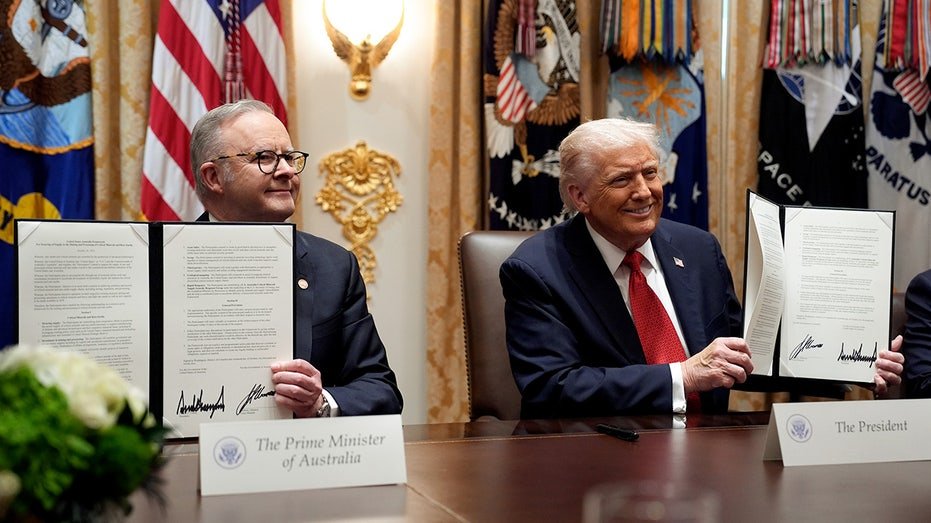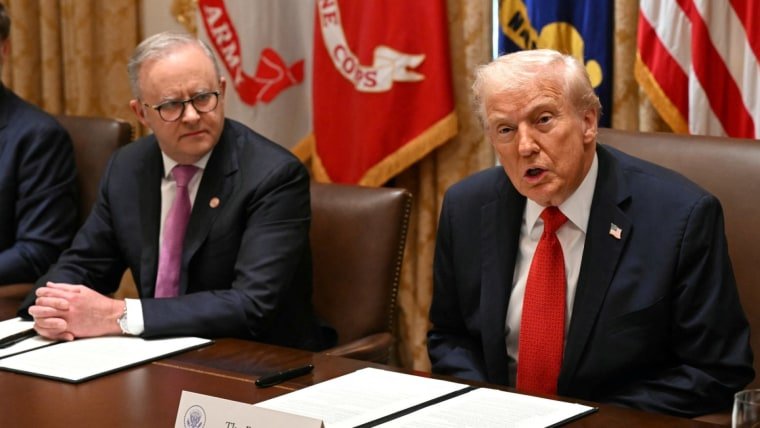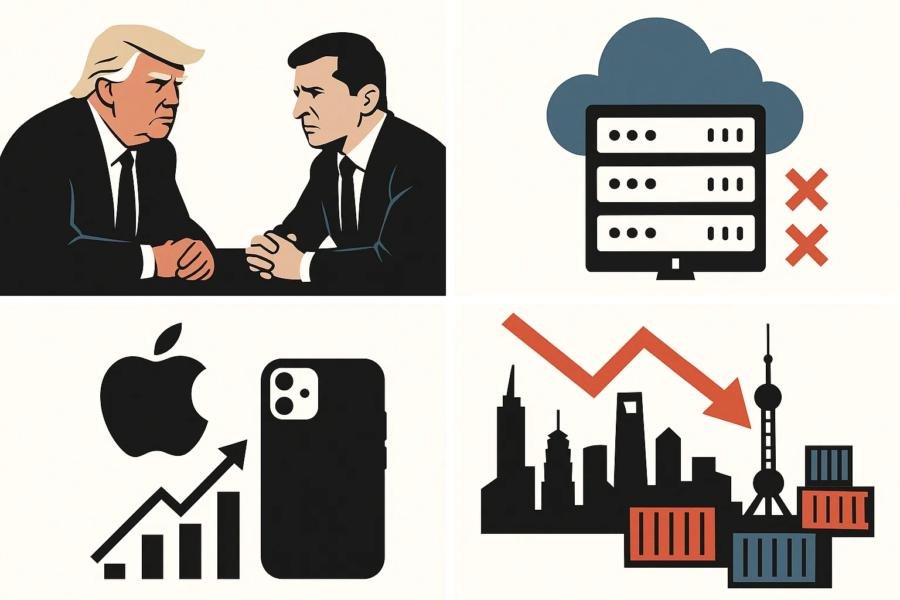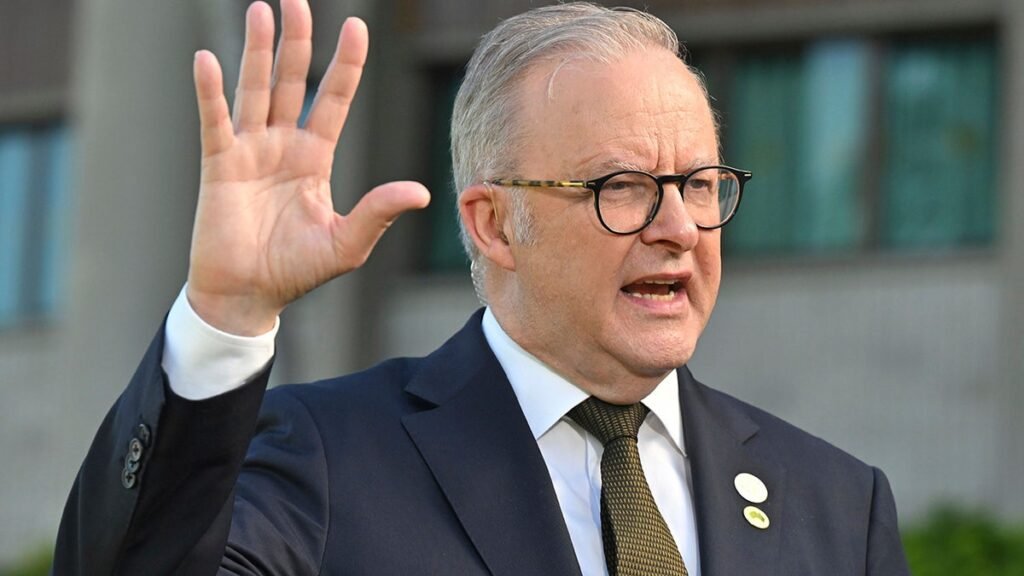Harvested soybeans are dropped into a grain elevator for storage during a harvest outside St. Peter, Minn. (Ben Brewer/Bloomberg)
[Stay on top of transportation news: Get TTNews in your inbox.]
President Donald Trump listed rare earths, fentanyl and soybeans as the U.S.’s top issues with China just before the two sides return to the negotiating table and as a fragile trade truce nears expiration.
“I don’t want them to play the rare earth game with us,” Trump said on Air Force One on Oct. 19 as he headed back to Washington from Florida. Days earlier, the U.S. leader threatened a 100% tariff on Chinese shipments after Beijing vowed to exert broad controls on the minerals.
Trump also said the U.S. wanted China “to stop with the fentanyl,” a reference to his accusation that Beijing has failed to curb exports of the drug and its precursor chemicals, contributing to the American opioid crisis. Another key demand was for the world’s No. 2 economy to resume soybean purchases. The three topics were all “very, you know, normal things,” he added.
Treasury Secretary Scott Bessent has said the U.S. and China will hold talks later this week in Malaysia. That came after he met virtually with Vice Premier He Lifeng on Oct. 10, discussions that Chinese state media described as a constructive exchange of views.
A little over a week ago, Trump raised the prospect of canceling his first in-person meeting with China’s President Xi Jinping since he returned to the White House, angry over the Chinese government’s vow to exert broad controls on rare-earth elements. He also declared the 100% import surtax would take effect Nov. 1.
That threatens a trade truce that is set to run out on Nov. 10 unless extended. Months of tentative stability in the U.S.-China relationship have been upended in recent weeks after Washington broadened some tech restrictions and proposed levies on Chinese ships entering U.S. ports. China responded with parallel moves and outlined tighter export controls on rare earths and other critical materials.
When asked in an interview with Fox News on Oct. 19 about his latest threat to raise the tariff on Chinese goods, Trump said the levy was “not sustainable” though “it could stand.”
Donald Trump and Xi Jinping. (Bonnie Cash/UPI, Oliver Bunic/Bloomberg)
He added that he had a good relationship with the Chinese leader, and he expected a sitdown to happen in South Korea, where an Asia-Pacific Economic Cooperation meeting starts later this month. “I think we’re going to be fine with China, but we have to have a fair deal. It’s got to be fair,” Trump said.
Soybeans have been a key source of leverage for China in the trade dispute. Last year, China bought some $12.6 billion worth of the oilseed but this year that figure is zero. China has instead turned to purchases from South America.
Frustrations among U.S. farmers — key to his support base — are mounting, with many running out of storage for unsold beans and facing pressure from lower prices. They are eagerly awaiting aid from Washington, which is held up because of the government shutdown.
In August, Trump urged China to quadruple its buying of soybeans from the U.S. Underscoring his frustration that it isn’t happening, last week he threatened to stop imports of cooking oil from China, which he accused of intentionally “causing difficulty for our Soybean Farmers.”
Jeremy Sanders and Pat Gunn of Stoughton Trailers discuss the future of intermodal equipment. Tune in above or by going to RoadSigns.ttnews.com.
The fentanyl issue has long been seen as an area where the two sides could make progress, though it still bedevils ties.
Earlier this year, Trump imposed tariffs of 20% on all Chinese goods over the flow of illegal fentanyl into the U.S. Those fees stack on top of his Liberation Day levies. In June, Beijing tightened controls over two chemicals that can be used to make the drug but China has also repeatedly said it is up to the US to fix its drug problem.
The three issues raised by Trump “are highly tangible and resonate with specific, powerful domestic constituencies in the U.S.,” said Sun Chenghao, a fellow at the Center for International Security and Strategy at Tsinghua University in Beijing. “By focusing on these, Trump aims for quick, demonstrable victories that can be communicated easily to the public, rather than engaging in the protracted and technically complex negotiations required to alter China’s fundamental industrial model.”
When asked at a regular press briefing in Beijing on Oct. 20 about Trump’s remarks, Chinese Foreign Ministry spokesman Guo Jiakun said that a “trade war does not serve the interests of either party, and both sides should negotiate and resolve relevant issues on the basis of equality, respect and mutual benefit.”
China has tried to ease concern over the escalation of curbs on rare earths — critical to making fighter jets, smartphones and even car seats — to soften an international backlash.
In discussions on the sidelines of the International Monetary Fund’s annual meetings last week, Chinese delegates told their counterparts from around the world that tightened export controls will not harm normal trade flows, Bloomberg News reported earlier, citing people familiar with the matter.
The officials said China sought to build a long-term mechanism with the measure, and it was introduced as a response to U.S. provocations such as the expansion of sanctions to capture subsidiaries of blacklisted companies, according to the people, who asked not to be named because the exchanges were private.
Written by Skylar Woodhouse, Philip Glamann and Colum Murphy








